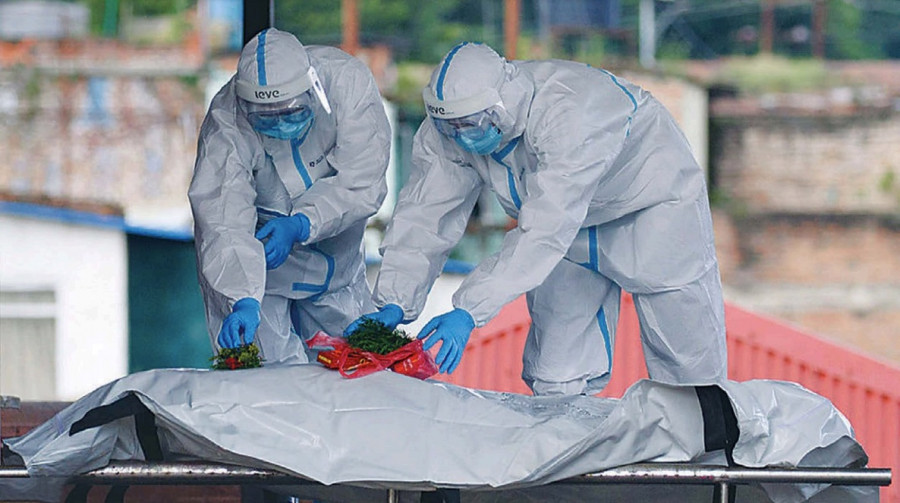Editorial
Watch out
The government should design long-term support programmes to support pandemic victims.
Nearly two months after announcing financial support for half a million low-income families that have lost life or livelihood due to the Covid-19 pandemic, the government has finally prepared guidelines for its distribution. The government plans to support daily wage workers, agriculture labourers, rickshaw pullers, public transport labourers and families that lost sole breadwinners to the pandemic. For receiving support, applicants are expected to apply through the local level, after which different arms of the government work together to identify the beneficiaries. That sounds like a well-thought-out plan at first glance.
However, the Rs10,000 one-time support to half a million households is too little and, in most cases, too late, considering the enormous impact the pandemic has had on a large section of the country. As millions of citizens across the country have lost their means of earning temporarily and permanently, the scheme covers only a fraction of the people affected by the pandemic. Moreover, a one-time financial support scheme cannot compensate for the financial loss incurred due to the loss of a job or the death of a breadwinner. Instead, the government should design long-term support programmes such as creating more job opportunities, providing vocational training and providing soft loans to help victims find ways to become financially independent.
What’s more, questions remain as to whether the government can ensure fair implementation of the scheme that is already too little. Past experiences tell us that relief schemes are provided not to the needy but to those close to those who have the key to power at government institutions. When the KP Sharma Oli government distributed some relief packages in the early days of the pandemic, it was the local karyakartas of political parties who usurped the packages, leaving the needy high and dry. As political parties gear up for local and parliamentary elections soon, the chance of the funds being misused to placate people close to the party rather than support those who have fallen victim to the pandemic is pretty high. The government must show, through action, that it is serious about helping the needy rather than turning it into a program to please the cadres of its coalition partners.
Moreover, as life seems to return to “normal” again, with people going back to offices, schools, universities, pubs, parks and virtually everywhere, the risk of coronavirus transmission remains. And with it, the possibility of yet another cycle of transmission, a higher daily average of deaths, movement restrictions, and job loss remains. After nearly a year of dealing with the first wave of the pandemic, we were utterly clueless when the second wave hit us. We cannot let that happen once again. The way people have travelled and celebrated during the various major festivals in the past few months as if the virus were a thing of the past, there is no denying that we are hanging by a thread. Therefore, it is incumbent upon the government to continue sending out messages of caution to the people and preparing for combat against coronavirus anytime.




 13.12°C Kathmandu
13.12°C Kathmandu














